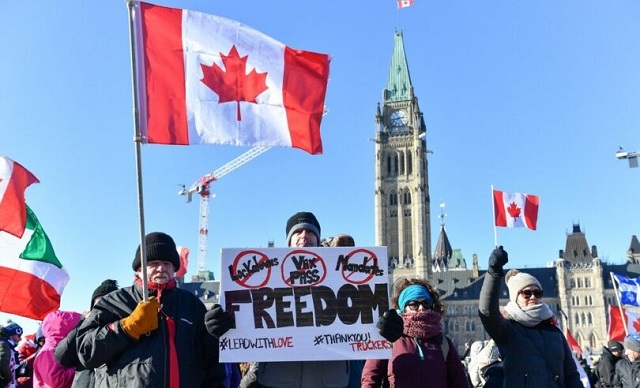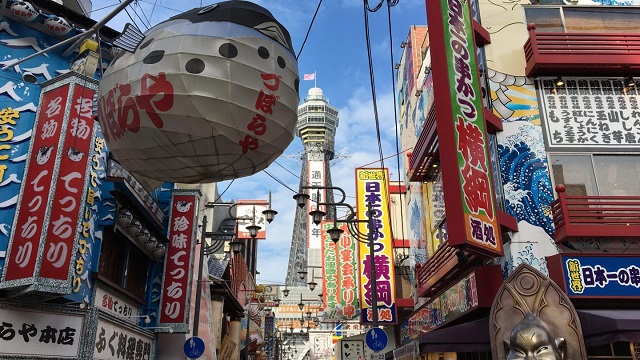Alberta
Being a Cop has Always Been a Thankless Job

Being a cop has always been a thankless job.
But in our current climate, police would be happy for the bygone days of a thankless community, compared to what they are currently enduring.
Never before in modern history have police officers been accused of being the worst of society. Today, the reputation of cops is constantly under attack by the media. And fringe groups who purport to have a noble agenda are paradoxically allowed by our governments to wreak havoc on our cities without consequence. Entire city blocks have been burned, children have been murdered, and yet the media all but ignores the backlash of the problem, which they themselves are largely responsible for inciting.
Well-intended people have been duped into believing that roughly half of society are devout white supremacists, and that visible minorities are being hunted and killed by the police. The media bolsters this false narrative daily, which has created an incredibly unstable and explosive environment. When a group of people believes that they are in danger of being killed by the police, it’s only natural for a member of that group to be afraid, and resist arrest. When you resist arrest, you are making a safe situation dangerous by escalating the force required to arrest you. If you comply with the orders of the police officer, you are almost ALWAYS safe. It is extremely rare that a compliant arrestee is harmed or killed as a result of the arrest. In those rare instances, the police officers are likely at fault, and deserve to be charged. Only improved training and selection practices can reduce these rare instances.
A part of policing which very few average people are willing to engage in is combat. Most people have never been in a dangerous fistfight, but for cops, getting into scraps is a common occurrence. Some of these fights involve armed bad guys who are high on crystal meth, and who are nearly impossible to control. When a crazed meth head charges at you with a knife, the only realistic response is to pull out your pistol and fire a few rounds into the center of the target. The pollyanic fools who cry, “you should have shot them in the leg!” have no concept of the reality of combat. There isn’t a police officer alive that has the training and skill to reliably make a “leg shot” against a crazed charging assailant. And no, a taser is not reliable enough to deploy in this situation either.
Armchair critics are quick to judge and condemn the use of violent force, without having the faintest idea of the reality of a combat environment. Many will recoil at the word “combat”, by saying, “combat is for a battle field, not for our streets! Our cops are not soldiers!” And, they would be wrong. Combat is a violent “must win” altercation. When someone is violently resisting arrest…that absolutely qualifies as combat. It’s not the police who initiate the combat…it’s the person being arrested who creates the combat situation, which the police have no choice but to respond to with force.
Police officers work in a world that is completely foreign to most middle class folks. The average person can no more understand what it is to be a cop, than they can understand what it’s like to live on Mars.
It seems that the public has forgotten the simple fact that cops are just people. Flawed, regular human beings who have decided to risk their lives so that others may live safely.
When people join the police force, they do so for one of four reasons.
- Most join out of a sense of responsibility to provide meaningful service to their community. These people tend to make the best police officers, and often make up the majority of a good police force. Lately the media has been ignoring the fact that most police officers fit this description.
- Some others join out of a sense of adventure, craving fun and action in their job.
- And there are those who join simply to have a respectable, and reliable source of income.
- But unfortunately, there are a few who join because they crave having a sense of power. These are the problem cops which every police organization tries to weed out, yet every police service has at least a few of these problem children to deal with. These are the minority of cops, which the media are currently focusing on, and they are painting all police with this contaminated brush.
In addition to these four types of police officers, there is a rare outlier. Occasionally, a trigger-happy psychopath will slip through the cracks. The psychological evaluations are put in place as a filter to weed out these types of applicants, but no system is perfect. Psychopaths often know the right words to say, and how to mask their true identity. Even a lie detector test can be defeated by a psychopath or sociopath. I won’t pretend that these people don’t occasionally make it onto an otherwise honourable police service, however I also won’t agree that police services across the western world have been over-run by them as the media would have you believe.
There are bad apples in every organization, and try as you might, you’ll never weed 100% of them out. If you’re going to have a large group of people, there will always be a tiny minority within the ranks who will potentially cause great harm.
The truth about police officers is that they have chosen a life of dangerous, high stress service, so that you and I can live a safer, less stressful life. They deal with dangerous people, so that YOU don’t have to. They literally get punched in the face, so that YOU don’t have to. Lets face it, most people have no ability whatsoever to defend themselves against a violent attacker. We should all be grateful to those who put themselves in harms way so that they can arrest, and lock up the people who are a danger to society.
Now, with all of that being said, how can Police officers muscle through the negativity and added danger they now face?
Let’s’ start with something we can control, which is our perspective.
“I hate you!” are three words a parent never wants to hear from their child. When it happens, although it may sting for a moment, a good parent quickly realizes that their kid is simply having a fit, and doesn’t know how else to express themselves. Also, it’s easy to discard unkind words from a child by realizing that they simply don’t know any better. “If they knew better, they would do better” is a mantra I strive to remember.
When it’s a large group of “adults” who are pitching a fit in the form of a riot, it’s difficult to remember that they don’t know any better. EVERYONE feels justified in their cause, regardless of the facts at hand.
Regardless of the haters, try to remember why you’re there in uniform. You are there to serve those who need you, with or without their appreciation. Your life is one of sacrifice, and some days suck worse than others, but there are still good days. You help. You DO make a difference, and whether the public knows it or not, they need you.
Remember that the anti-cop sentiment is based on a belief in a false narrative. Despite the demonstrative evidence to the contrary, these misguided people actually believe that the Police are out to get people of colour. We must realize that although misguided, their outrage is real to THEM. They really don’t know any better, and it’s not their fault. The media has created this environment with their bias.
Be mindful of your focus.
Now is a great time to stay off of Facebook. If you can’t limit your social media, then at least purge everyone from your contacts list who shared negative posts about the police. It’s easy to unfriend, unfollow, or even BLOCK people. You don’t need to engage. You won’t change anyone’s mind, so why try?
Remember, and focus on those who appreciate you. If you look, you’ll see armies of supporters who are cheering for you. They may be the “silent” majority, but they are there all the same.
Alberta
Maxime Bernier says it’s ‘astounding’ Alberta is ‘pushing’ COVID boosters, tells Danielle Smith to stop it

From LifeSiteNews
The People’s Party of Canada leader tells the Alberta government: ‘It’s over! Get over it!’
People’s Party of Canada (PPC) leader Maxime Bernier said Alberta Premier Danielle Smith should tell provincial health bureaucrats to “back off” and stop “pushing” the mRNA COVID boosters on “anyone,” considering a recent announcement from health officials recommending yet more COVID shots.
“I find it astounding that Alberta public health bureaucrats are still pushing the mRNA boosters on anyone, and especially on children who have never been at risk, almost two years after almost all other pandemic measures have been ended,” Bernier told LifeSiteNews.
“Danielle Smith’s government should tell its bureaucrats to back off and stop stupidly feeding a needless sense of fear surrounding the virus that lingers among certain groups of society. It’s over! Get over it!”
Earlier this week, officials from Alberta Health Services (AHS), whose chief medical officer throughout the COVID crisis, Dr. Deena Hinshaw, was fired by Smith in 2022, updated its COVID booster recommendations to every “three months” starting at babies only six months old.
“Starting April 15, 2024, select groups of Albertans at high risk of severe outcomes from COVID-19 will be eligible for an additional dose,” the AHS noted on its website.
AHS health officials still assert that all “vaccines are safe, effective and save lives,” and that one can get a COVID shot at the same time as a flu vaccine.
On April 16, Bernier commented on the AHS’s new COVID jab guideline changes on X, in which he asked, “What’s going on in Alberta with their “conservative” government?
Bernier, who was a firm opponent of both the COVID shots and mandates, told LifeSiteNews that AHS’s recommendations are puzzling, given “more and more scientific evidence is emerging of dangerous side effects when injecting from these experimental substances.”
“Even though these are only recommendations, and nothing is mandated, this ‘guidance’ by government agencies influences people’s decisions,” Bernier said.
AHS claims that the booster shots “are anticipated to provide a good immune response against currently circulating strains.”
Those under 18 still need written or verbal consent from their parents to get the shot.
AHS is recommending booster jabs for seniors, healthcare workers as well as those with underlying medical conditions. They also recommend that First Nations people and “members of racialized and other equity-denied communities,” as well as pregnant women get the shots as well.
The COVID shots were heavily promoted by the federal government as well as all provincial governments in Canada, with the Alberta government under former Premier Jason Kenney being no exception.
The mRNA shots themselves have been linked to a multitude of negative and often severe side effects in children.
Danielle Smith took over from Kenney as leader of the United Conservative Party (UCP) on October 11, 2022, after winning the leadership. Kenney was ousted due to low approval ratings and for reneging on promises not to lock Alberta down as well as enacting a vaccine passport. Smith was opposed to COVID jab mandates.
Bernier: It’s ‘deplorable’ some provinces still mandate COVID shot for Heathcare workers
While Alberta does not mandate the COVID shots for healthcare workers anymore, British Columbia still does as well as some health regions in Ontario, a fact that Bernier called “deplorable.”
“I find it deplorable that nurses, doctors and other healthcare workers in B.C. and Ontario still have to be vaccinated to work in hospitals and that thousands of them have not been reintegrated,” Bernier told LifeSiteNews.
“The authoritarian covid measures adopted by all governments have been traumatic enough for millions of Canadians. All of them should be lifted.”
Last year, LifeSiteNews reported on how the details of the Canadian federal government’s COVID-19 vaccine contract with Pfizer for millions of doses of the mRNA-based experimental shots were recently disclosed after being hidden for over three years.
The contract with Pfizer shows the government agreed to accept the unknown long-term safety and efficacy of the shots. The details of the Pfizer contract do not disclose how much the government spent on the jabs.
A bill introduced by Conservative Party leader Pierre Poilievre that would have given Canadians back their “bodily autonomy” by banning future jab mandates was voted down last year after Trudeau’s Liberals and other parties rejected it.
Adverse effects from the first round of COVID shots have resulted in a growing number of Canadians filing for financial compensation over injuries from the jabs via the federal Vaccine Injury Program (VISP).
VISP has already paid well over $11 million to those injured by COVID injections.
Earlier this year, LifeSiteNews reported on how officials from Health Canada have admitted that there is “residual plasmid DNA” in the COVID shots after a Conservative MP asked the agency through an official information request if the DNA fragments were in the shots.
As for Bernier, earlier this month he called out Poilievre for dodging a question regarding Canada’s participation in the United Nations’ pro-abortion Paris Climate Agreement.
Throughout most of the COVID crisis, Canadians from coast to coast were faced with COVID mandates, including jab dictates, put in place by both the provincial and federal governments.
After much pushback, thanks to the Freedom Convoy, most provincial mandates were eliminated by the summer of 2022.
There are currently multiple ongoing class-action lawsuits filed by Canadians adversely affected by COVID mandates.
Alberta
Canada’s advantage as the world’s demand for plastic continues to grow

From the Canadian Energy Centre
By Will Gibson
‘The demand for plastics reflects how essential they are in our lives’
From the clothes on your back to the containers for household products to the pipes and insulation in your home, plastics are interwoven into the fabric of day-to-day life for most Canadians.
And that reliance is projected to grow both in Canada and around the world in the next three decades
The Global Plastics Outlook, published by the Paris-based Organization for Economic Co-operation and Development (OECD), forecasts the use of plastics globally will nearly triple by 2060, driven by economic and population growth.
The use of plastics is projected to double in OECD countries like Canada, the United States and European nations, but the largest increases will take place in Asia and Africa.
“The demand for plastics reflects how essential they are in our lives, whether it is packaging, textiles, building materials or medical equipment,” says Christa Seaman, vice-president, plastics with the Chemical Industry Association of Canada (CIAC), which represents Canada’s plastics producers.
She says as countries look to meet climate and sustainability goals, demand for plastic will grow.
“Plastics in the market today demonstrate their value to our society. Plastics are used to make critical components for solar panels and wind turbines. But they also can play a role in reducing weight in transportation or in ensuring goods that are transported have less weight in their packaging or in their products.”
Canada produces about $35 billion worth of plastic resin and plastic products per year, or over five per cent of Canadian manufacturing sales, according to a 2019 report published by the federal government.
Seaman says Canadian plastic producers have competitive advantages that position them to grow as demand rises at home and abroad. In Alberta, a key opportunity is the abundant supply of natural gas used to make plastic resin.
“As industry and consumer expectations shift for production to reduce emissions, Canada, and particularly Alberta, are extremely well placed to meet increased demand thanks to its supply of low-carbon feedstock. Going forward, production with less emissions is going to be important for companies,” Seaman says.
“You can see that with Dow Chemical’s decision to spend $8.8 billion on a net zero facility in Alberta.”
While modern life would not be possible without plastics, the CIAC says there needs to be better post-use management of plastic products including advanced recycling, or a so-called “circular economy” where plastics are seen as a resource or feedstock for new products, not a waste.
Some companies have already started making significant investments to generate recyclable plastics.
For example, Inter Pipeline Ltd.’s $4.3 billion Heartland Petrochemical Complex near Edmonton started operating in 2023. It produces a recyclable plastic called polypropylene from propane, with 65 per cent lower emissions than the global average thanks to the facility’s integrated design.
Achieving a circular economy – where 90 per cent of post-consumer plastic waste is diverted or recycled – would benefit Canada’s economy, according to the CIAC.
A Deloitte study, commissioned by Environment & Climate Change Canada, estimated diverting or reusing 90 per cent of post-consumer plastic waste by 2030 will save $500 million annually while creating 42,000 direct and indirect jobs. It would also cut Canada’s annual CO2 emissions by 1.8 megatonnes.
Right now, about 85 per cent of plastics end up in Canada’s landfills. To reach the 90 per cent diversion rate, Seaman says Canada must improve its infrastructure to collect and process the plastic waste currently being landfilled.
But she also says the industry rather than municipalities need to take responsibility for recycling plastic waste.
“This concept is referred to as extended producer responsibility. Municipalities have the responsibility for managing recycling within a waste management system. Given the competing costs and priorities, they don’t have the incentive to invest into recycling infrastructure when landfill space was the most cost-effective solution for them,” she says.
“Putting that responsibility on the producers who put the products on the market makes the most sense…The industry is adapting, and we hope government policy will recognize this opportunity for Canada to meet our climate goals while growing our economy.”
-

 COVID-191 hour ago
COVID-191 hour agoCDC Quietly Admits to Covid Policy Failures
-

 COVID-194 hours ago
COVID-194 hours agoJapanese study shows disturbing increase in cancer related deaths during the Covid pandemic
-

 Freedom Convoy2 days ago
Freedom Convoy2 days agoTrudeau’s use of Emergencies Act has cost taxpayers $73 million thus far
-

 Alberta2 days ago
Alberta2 days agoDanielle Smith warns arsonists who start wildfires in Alberta that they will be held accountable
-

 Frontier Centre for Public Policy2 days ago
Frontier Centre for Public Policy2 days agoThe Smallwood solution
-

 Agriculture2 days ago
Agriculture2 days agoBill C-282, now in the Senate, risks holding back other economic sectors and further burdening consumers
-

 Bruce Dowbiggin1 day ago
Bruce Dowbiggin1 day agoWhy Are Canadian Mayors So Far Left And Out Of Touch?
-

 National2 days ago
National2 days agoCanada’s Governor General slammed for hosting partisan event promoting Trudeau’s ‘hate speech’ bill




